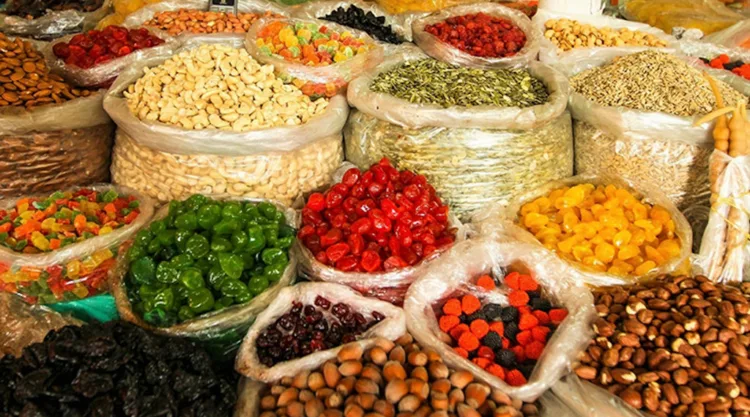Following Russia’s decision to pull out of an agreement that guaranteed safe passage for ships carrying grain exports from Ukraine, farmers in Nigeria have lamented that this would put more pressure on the already high food prices in the country.
Prices of wheat and corn on global commodities markets increased yesterday after Russia pulled out of a deal that had allowed some vital grain exports from Ukraine to pass through the Black Sea despite the war.
Wheat futures on the Chicago Board of Trade jumped 5.5 per cent yesterday to $8.74 a bushel. Corn futures were up 2.3 per cent to $6.96 a bushel. Palm oil futures trading in Malaysia also rose, Reuters reported, on fears over the potential impact on exports of Ukrainian sunflower oil.
Ukraine and Russia together account for nearly a third of global wheat exports, according to Gro Intelligence, an agricultural data firm. They are also among the top three global exporters of barley, maize, rapeseed oil and sunflower oil.
The Black Sea deal which was brokered in July by the United Nations and Turkey between Russia and Ukraine had already resulted in shipment of 23,000 metric tonnes of grains to the Horn of Africa, and under the deal all vessels coming to and from Ukraine’s ports were inspected and monitored by international teams made up of officials from Russia, Ukraine, Turkey and the UN.
According to the UN, the deal has provided some relief as it estimated that the reduction of prices for staple foods as a result of the deal had indirectly prevented some 100 million people from falling into extreme poverty.
Although Nigeria was not among the African countries that benefited from the first shipment, the country remains the fourth largest importer of wheat in the world, and in 2020 it imported $2.15 billion in wheat primarily from Russia ($556 million).
According to an annual report on the grains, Nigeria will produce 160,000 tonnes of wheat in 2022-2023 but with the current flooding, the production capacity is likely to drop, thereby leading to increase in the product importation to close more than five million metric tonnes demand deficit.
Russia’s withdrawal has sparked concerns over global food supply at a time when the world is already facing a growing hunger crisis; and in Nigeria, despite government efforts to tame the current food prices, food inflation continues to increase, hitting 20.52 per cent as of August 2022.
Reacting to the development, national president of All Farmers Association of Nigeria (AFAN), Arc Kabir Ibrahim, said the hike in food prices is likely to continue due to a number of factors, including the withdrawal of Russia from the Black Sea deal.
He said, “Nigeria, like many other countries of the world who import wheat from Ukraine, will suffer a significant drop in supply from the region because of Russia’s actions.
”The hike in food prices is likely to continue due to a number of factors including the withdrawal of Russia from the Black Sea deal.”
According to him, Nigeria should simply look inwards for a sustainable food supply, otherwise it will forever face this situation.
Although there are concerns that with this withdrawal, Russia may block further shipping of grain through the Black Sea, but on Sunday the United Nations said that a plan was put in place to allow 16 vessels to move on Monday, with 21 vessels in or near the Ukrainian ports with a capacity of over 700,000 metric tonnes of grains that were impacted by the announcement.
Speaking to LEADERSHIP, the national president of Wheat Farmers Association of Nigeria, Alhaji Salim Sale Muhammad, lamented that the Russia decision will have negative impact on Nigeria.
He said, “The Russian position has a direct negative impact in the country because there is no strategic planning towards addressing the situation. For example, wheat farming season is now, yet there are no signs of preparation or readiness not to talk of commitment towards embarking on the programme, be it from the CBN Anchor Borrowers Programme, or the AfDB programme.
“Anyway, if a giant approach to increase food production is not given due attention, I am afraid there would be acute food shortage and rise in prices beyond control. The only way out is to mobilise and campaign for massive food production on time,” he stated.
On his part, the CEO, Centre for the Promotion of Private Enterprise (CPPE), Dr Muda Yusuf, said that the implication will be very negative for food inflation around the world – not just Nigeria – because Russia and Ukraine have a significant proportion of wheat export and other grains like corn.
According to him, this will lead to disruption in food supply, especially in wheat and corn – which are staple foods – and further worsen the food inflation around the world.
He said, “We are likely to see an increase in the price of wheat, corn, maize and other grains that are related. This is not good news at all, from the inflationary point of view.”
On the way forward, Yusuf said the President had set up a committee to advise him on the challenges of food and security; we hope the committee will come up with something concrete.
“But in the meantime, I think we should look at the incentives we can give to those who are in agriculture and the entire agric value chain; incentive in the area of tariff, input in machineries and technologies and raw materials as these will bring down their cost of production and reduce prices,” he said.















